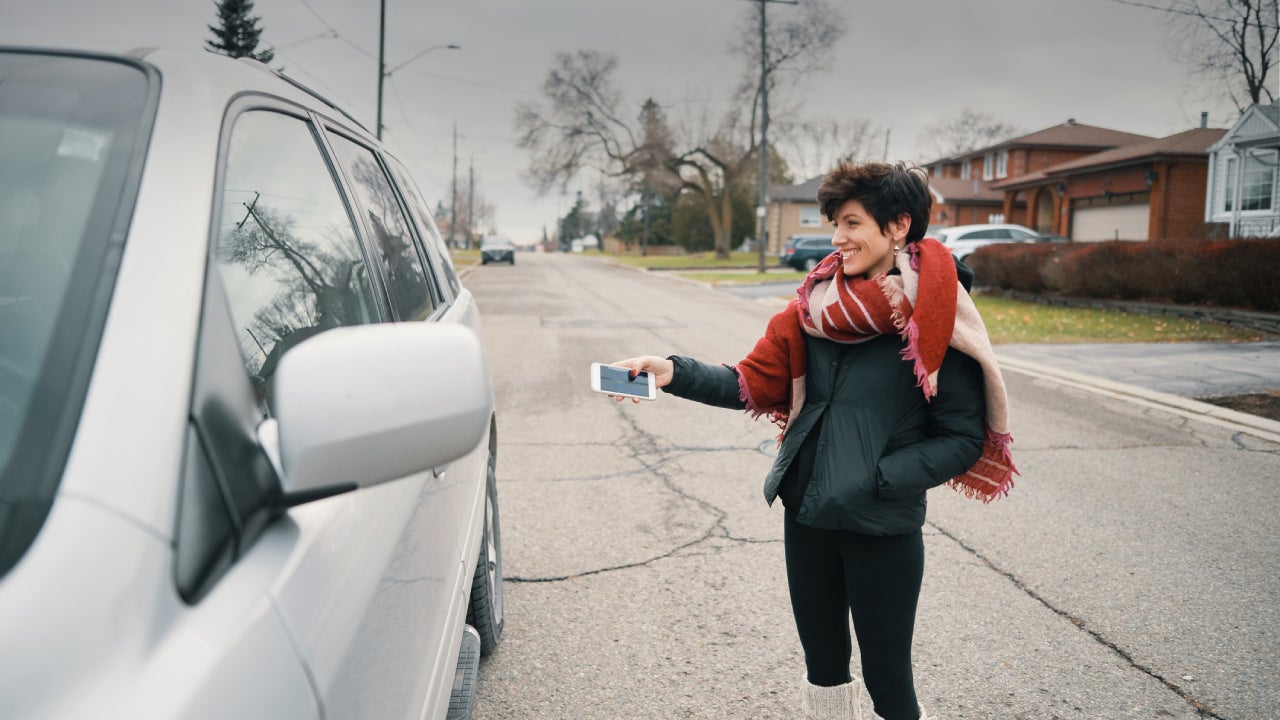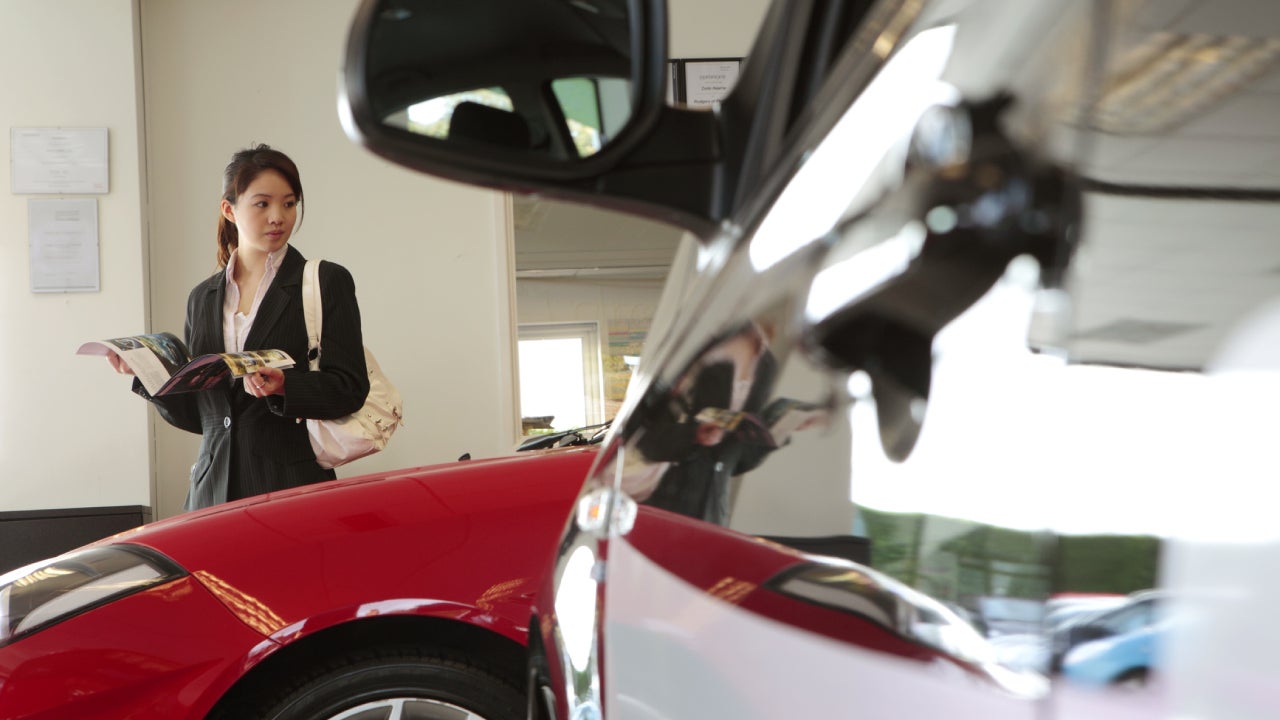Insuring a leased vehicle

Key takeaways
- Since the leasing company owns your car, it determines the amount of insurance you need to buy.
- Generally, a leased car will require robust insurance coverage, including collision and comprehensive insurance.
- Because of the more stringent requirements, lease car insurance may be more expensive than what you’d pay if you owned the car.
Leasing a car may look appealing if you like to trade your car in every few years or are looking for lower monthly costs. But what about lease car insurance? Who pays insurance on a leased car? Does car leasing include insurance costs? Although every leasing company is likely to have its own lease car insurance requirements, generally, you will be required to purchase robust coverage that protects the company’s investment in the vehicle. We took a careful look at car insurance for leased vehicles to help you make the decision that’s best for your car—and your wallet.
How car insurance for a leased car works
The process for insuring a leased car is similar to insuring a financed vehicle. The main difference between insuring a leased vehicle and insuring a vehicle you own is that you may be required to purchase additional coverage, depending on any stipulations outlined by the company that owns your vehicle. Leasing your vehicle does not usually directly impact premiums, but some providers may consider it in setting your rate. However, if this is the case, the premium impact is usually minimal.
Lease insurance requirements differ, depending on what’s specified in your lease agreement. However, there are a few standard coverage options that lessees can expect to pay for when insuring their leased vehicle. Most lessors will likely require full coverage car insurance, which includes physical damage coverage to pay to repair or replace your vehicle. This is because state-required minimum coverage does not provide physical damage coverage, which you can choose to include or not include when you own a vehicle.
Lease car insurance requirements
Because the leasing company owns the car, it’s necessary for an auto insurance policy to financially protect against damage to the vehicle if it’s stolen or involved in an accident. Typically, leasing companies require collision coverage and comprehensive coverage. Collision coverage helps pay for repairs resulting from an accident, while comprehensive coverage provides coverage for repairs needed if the car is damaged via theft, vandalism, fallen objects or other non-accident-related events.
Liability insurance for leased vehicles is often required to cover at least $100,000 per person for bodily injury caused to others, up to $300,000 per accident, and property damage of at least $50,000. Policyholders with a lease may also consider purchasing gap insurance, which pays the difference between a newer leased vehicle’s value at the time of a theft or accident and the amount you still owe. Another consideration is rental car reimbursement coverage, which will pay part or all of the cost of a rental car while the leased vehicle is being repaired after a covered loss.
In contrast, if you have a car that you own outright, you are only required to purchase your home state’s minimum required car insurance. Almost all states have minimum requirements, and in many places, they are fairly low. If you live in Pennsylvania, for example, you are required to carry $15,000 per person and $30,000 per accident in bodily injury liability, along with $5,000 in property damage. This is far lower than what you would likely need to purchase with a leased vehicle.
It’s important to carefully review the lease terms, as some companies include gap insurance or other optional coverage types as part of the payments. If this coverage is not included, lessees may consider going with a carrier that offers gap insurance coverage through the auto policy.
What are the state requirements for insurance on a leased car?
If you lease a car, most lessors — regardless of the state — will require that you purchase car insurance beyond the state’s minimum coverage requirements to include comprehensive and collision coverage. The cost of this more robust coverage will be dependent on many factors, your ZIP code being one of them. For instance, a driver in Florida pays an average cost of $3,430 per year for full coverage, while a driver in Idaho only pays an average of $1,301.
Cost of insurance for a leased vehicle
Because you often have to purchase higher levels of coverage for leased cars, insurance may be more expensive than if you owned the car. These higher requirements are written into the terms of the lease, however, and if you do not adhere to them, your lessor may purchase coverage on your behalf, called force-placed insurance. This coverage may be more expensive than car insurance that you purchased on your own.
“Leasing a car can be more affordable since the monthly lease payments are usually lower than car loan payments, but there are some differences that drivers should be aware of,” says licensed agent and Bankrate writer Shannon Martin. “Lease agreements usually require bodily injury and property damage liability limits of $100,000 per person and $300,000 per occurrence. There may also be a cap on how high your comprehensive and collision deductible can be, required gap coverage and annual mileage restrictions — some of these differences may result in a higher auto insurance premium.”
The make and model of the leased vehicle can also affect the cost of car insurance. Before you commit to a lease, it might make sense to get an auto insurance quote first. This way, you can compare different makes and models to determine which fits your budget for both the lease and insurance payment. Here are sample rates for full coverage of some popular vehicles:
| Model | Avg. full coverage car insurance cost |
|---|---|
| BMW 330i | $3,302 |
| Chevrolet Corvette | $3,554 |
| Ford F-150 | $2,611 |
| Honda CRV | $2,262 |
| Subaru Outback | $2,227 |
Lessees should scrutinize the terms of their agreement before leasing the vehicle. The perceived savings may not always be worth it if the added cost of insurance drives monthly payments for the vehicle up significantly.
However, purchasing a vehicle requires a long-term commitment, which may not be desirable for drivers who prefer to switch vehicles more frequently and take advantage of newer models. It’s a good idea to weigh all the options carefully to determine which is best for specific situations.
How can I lower my lease insurance cost?
There are several strategies you can undertake that may help lower your insurance costs.
- When shopping for the best policy, it can pay to compare car insurance quotes from several insurers. Every insurer uses their own methodologies to determine rates, so you are likely to receive a range of options from which you can pick the most affordable.
- Consider raising your deductible. This will probably earn you a lower rate but only do so if you would be able to manage the higher out-of-pocket payment in the event of a claim.
- Pay attention to discount opportunities. Almost all insurers offer at least a few discounts, and some may be easy to earn. You might, for example, save if you agree to receive your policy documents online rather than through postal mail or if you agree to pay your premium via a direct deposit.
- Improving your credit rating can benefit you over the long term. Insurers often reward those who have good credit with preferential rates, so paying your bills on time and keeping your credit utilization low can help you save on your policy over time.
Frequently asked questions
Methodology
Bankrate utilizes Quadrant Information Services to analyze May 2025 rates for all ZIP codes and carriers in all 50 states and Washington, D.C. Rates are weighted based on the population density in each geographic region. Quoted rates are based on a single, 40-year-old male and female driver with a clean driving record, good credit and the following full coverage limits:
- $100,000 bodily injury liability per person
- $300,000 bodily injury liability per accident
- $50,000 property damage liability per accident
- $100,000 uninsured motorist bodily injury per person
- $300,000 uninsured motorist bodily injury per accident
- $500 collision deductible
- $500 comprehensive deductible
To determine minimum coverage limits, Bankrate used minimum coverage that meets each state’s requirements. Our base profile drivers own a 2023 Toyota Camry, commute five days a week and drive 12,000 miles annually. Bundling and paperless billing discounts are applied.
These are sample rates and should only be used for comparative purposes. Your quotes will differ.
If otherwise specified, the base profile has been modified with the following driver characteristics:
Why we ask for feedback Your feedback helps us improve our content and services. It takes less than a minute to complete.
Your responses are anonymous and will only be used for improving our website.
You may also like

How to read an auto insurance policy

Car insurance for smart cars: Average premiums by model


Do you need insurance to buy a car?




